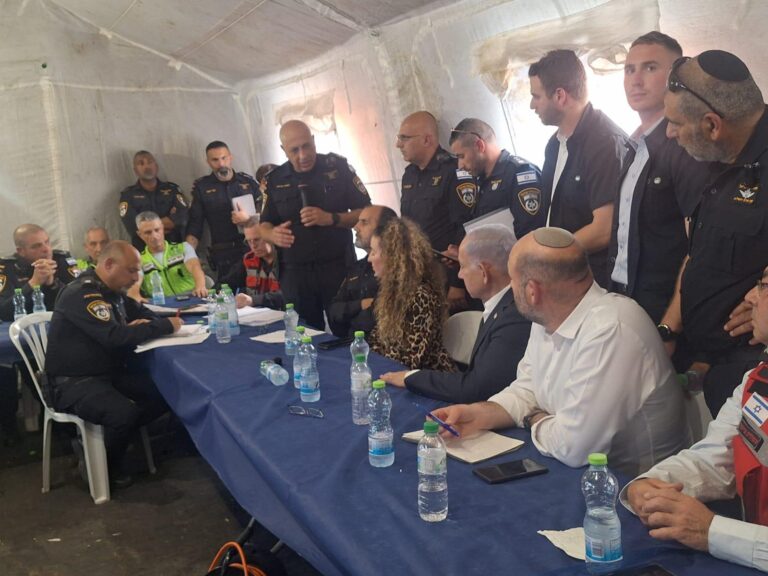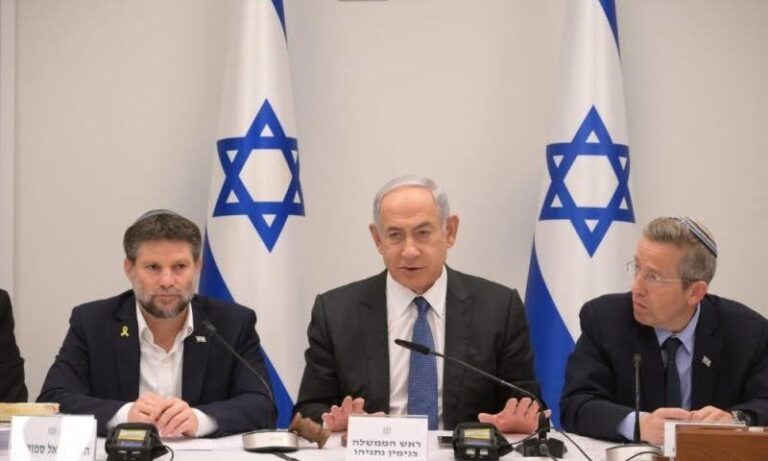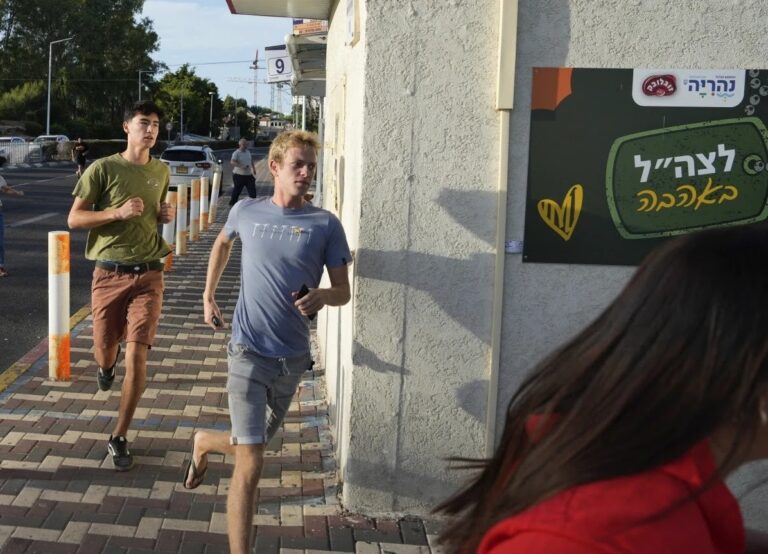 Brooklyn resident Ezra Bryant has been bothered for years by the stop and frisk encounters police have with tens of thousands of people a year in his neighborhood, and he’s glad city lawmakers have passed ambitious plans for more police oversight. Yet he’s not sure any real change will come of them.
Brooklyn resident Ezra Bryant has been bothered for years by the stop and frisk encounters police have with tens of thousands of people a year in his neighborhood, and he’s glad city lawmakers have passed ambitious plans for more police oversight. Yet he’s not sure any real change will come of them.
In what advocates hail as a potential transformation to policing in the nation’s biggest city, the City Council voted early Thursday to create an outside watchdog and make it easier to bring racial profiling claims against the New York Police Department. Both measures passed with enough votes to override expected mayoral vetoes, marking a shift in the public debate and power that have set the balance between prioritizing safety and protecting civil liberties here.
Bryant, and other New Yorkers who live in areas most affected by the policies the measures aim to address, greeted the news with tempered optimism.
“I don’t want the ability to sue the cops,” Bryant, 46, said later Thursday. “I want change in the whole system — the police, the city, the country, how we are viewed as people. I have children. I want it to be better for them.”
Bryant and others in neighborhoods where stop and frisks are most prevalent say they have felt some officers showed them disrespect and stopped them for no reason, and they question why other, whiter neighborhoods don’t see the same treatment. Bryant said he doesn’t know whether the measures will trickle down to the rank-and-file.
“I don’t mind the cops stopping people. We have a lot of guns and a lot of drugs,” said Bryant. But he said the tone of policing will be set through the chain of command, not city statutes.
“If there’s a bad supervisor, there will be bad cops on the street. I’m not sure a bill changes that dynamic,” said Bryant. He lives in the working-class Brownsville are, where police stopped, questioned and sometimes frisked nearly 22,150 people last year, mostly black and Hispanic men.
Citywide, about 5 million stops have been made during the past decade, mostly of minorities; arrests resulted about 10 percent of the time. The prevalence of stop and frisk was part of the impetus for the council’s action, as was concern about the NYPD’s surveillance of Muslims, as revealed in a series of stories by The Associated Press.
In East New York, where 24,418 people were stopped last year — the highest of any police precinct in the city — Kenny Unice said he hoped the measures passed Thursday would make officers think more about whom they stop and why. Police need reasonable suspicion to stop and question someone on the street, a standard lower than the probable cause needed to justify an arrest.
“It’s good when the cops stop the right people, but not when someone is out with their children or their wife,” Unice, 51, said as he walked with his grandchildren.
But other New Yorkers were wary of the changes, including Hamed Nabawy, a Muslim grocer in Brooklyn’s Boerum Hill neighborhood. He attends the Al-Farooq mosque, where the NYPD placed informants and conducted surveillance from across the street, the AP stories showed.
Nabawy didn’t mind that — “We have nothing to fear and nothing to hide. … Our doors are open,” he said. And, he said he’s concerned about any law that would make it harder for good police officers to do their job.
“I don’t remember one time they mistreated me or abused their power,” he said, adding that the neighborhood is much safer than it was 30 years ago because of the police. “We can always find them when we need them.”
While residents reflected on the developments Thursday, Mayor Michael Bloomberg and Police Commissioner Raymond Kelly vowed to fight measures they say will make the city less safe. They point to all-time lows in murders and other crimes as a bellwether to show their policies work, and they say the new measures would make officers hesitant to act, drown the department in lawsuits and divert the department’s attention.
“These are bills that are putting you and your family at risk,” Bloomberg said after an unrelated news conference.
Kelly, at a separate event, said the legislation “has a potential for increasing crime and making police officers’ jobs much more difficult.”
One of the measures would establish an inspector general with subpoena power to explore and recommend, but not force, changes to the NYPD’s policies and practices. The other would give people more latitude if they believe they were stopped because of bias based on race, sexual orientation or certain other factors.
Plaintiffs wouldn’t necessarily have to prove that a police officer intended to discriminate. Instead, they could offer evidence that a practice such as stop and frisk affects some groups disproportionately, though police could counter that the disparity was justified to accomplish a substantial law enforcement end. The suits couldn’t seek money, just court orders to change police practices.
Supporters hailed the legislation as a civil rights coup and said it would make the nation’s largest police department more accountable and the public more trusting of officers.
“I thought that it was a very important step toward establishing a system of checks and balances for the NYPD,” said Imam Al-Hajj Talib ‘Abdur-Rashid of the Islamic Leadership Council of Metropolitan New York, who had stayed through the night to watch the bills pass.
At a City Hall rally Thursday celebrating the measures’ passage, NAACP President Benjamin Jealous characterized them as a signal chapter in the organization’s campaign for civil rights.
“We have moved closer to being one nation, under God, with liberty and justice for all because we have moved closer to making our greatest city one city, under God, with liberty and justice for all,” Jealous said.
The measures follow decades of efforts to empower outside input on the NYPD. Efforts to establish an independent civilian complaint board in the 1960s spurred a bitter clash with a police union, which mobilized a referendum on it. Voters defeated it.
More than two decades later, private citizens were appointed to the Civilian Complaint Review Board, which handles mainly misconduct claims against individual officers. A 1990s police corruption scandal spurred a recommendation for an independent board to investigate corruption; a Commission to Combat Police Corruption was established in 1995, but it lacks subpoena power.
Courts also have exercised some oversight, including through a 1985 federal court settlement that set guidelines for the NYPD’s intelligence-gathering. And the City Council has weighed in before, including with a 2004 law that barred racial or religious profiling as “the determinative factor” in police actions, a measure Bloomberg signed.
(AP)










